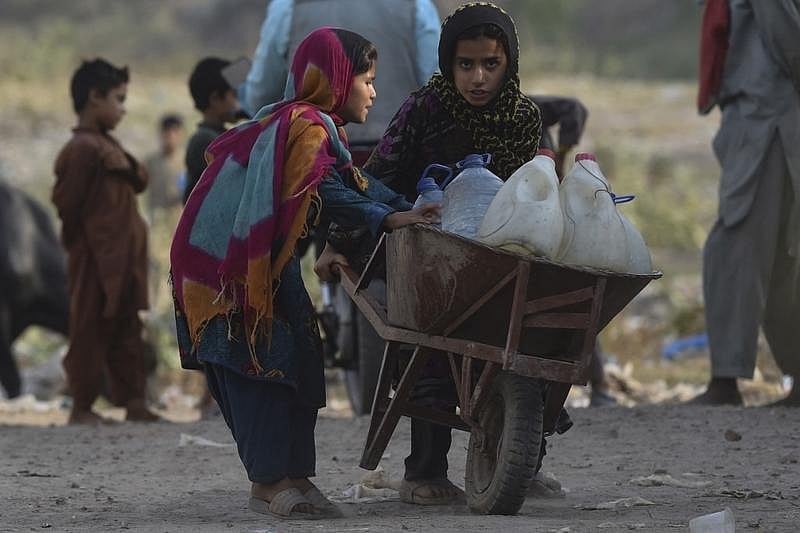New York: At least 200 million schoolchildren live in 31 low- and middle-income countries that are still unprepared for remote learning in future emergency school closures, a new UNICEF report revealed on Wednesday.
Among that group of students, 102 million live in 14 countries that have kept their schools fully or partially closed for at least half of the COVID-19 pandemic - locking many schoolchildren out of any kind of education.
The Remote Learning Readiness Index measures countries' readiness to deliver remote learning in response to disruptions of in-person education, covering almost 90% of students in low- and lower-middle-income countries. The analysis focuses on three domains: the availability of home-based assets and parents' education levels; deployment of policies and training for teachers; and the education sector's preparedness for emergencies, the UN agency said.
"Even in the midst of an ongoing emergency, we know there will be another one, but we aren't making enough progress to ensure the next time students are forced out of the classroom, they have better options," said Henrietta Fore, UNICEF Executive Director. "While disruptive, the past 19 months have given us a glimpse of what is possible during and after the pandemic. Together with partners, we have been hard at work to leverage the power of technology and to provide learning opportunities for children and young people everywhere."
The report outlines the limitations of remote learning and inequalities of access, warning that the situation is likely far worse than the available data shows. Beyond the countries assessed, anecdotal and qualitative data reveals that learners have faced challenges with remote learning globally, including in higher-middle and high-income countries.
Key findings of the report
Of 67 countries assessed, 31 countries are not ready to provide remote learning at all levels of education, with schoolchildren in West and Central Africa most affected; 17 countries have average readiness;19 countries have above average readiness.
Benin, Burundi, Cote d'Ivoire, Congo, Ethiopia, Madagascar, Malawi, Niger and Togo are among the countries with the most significant need for improvement within the education sector.
During the COVID-19 pandemic, the impact of lack of remote learning readiness was especially felt by students living in countries where schools were fully or partially closed for at least half of the past 19 months, such as Congo and Madagascar.
Pre-primary education is the most neglected level of education, with many countries not deploying a corresponding policy during COVID-19 lockdowns, leaving behind the youngest learners during their most critical years of development, UNICEF said.
It further added that other crises, such as those caused by climate change, can also significantly impact access to education. Of the 31 countries, 23 countries also face high or extremely high exposure to climate and environmental shocks, putting 196 million schoolchildren at greater risk of school disruptions in emergencies.
Argentina, Barbados, Jamaica, and the Philippines have the highest level of readiness. However, even among those with higher national scores on the index, within-country disparities mean children living in poorer households or rural areas are by far the most likely to miss out during school closures.
Many countries with relatively low gross national income scored above-average on the index, indicating the possibility for international cooperation and exchange of best practices.
There is no replacement for in-person learning, the report says. Yet, resilient schools with robust remote learning systems, especially digital learning, can provide a degree of education during school closures in times of emergencies. Moreover, once schools reopen, these systems can support students to catch up on their lost learning.







